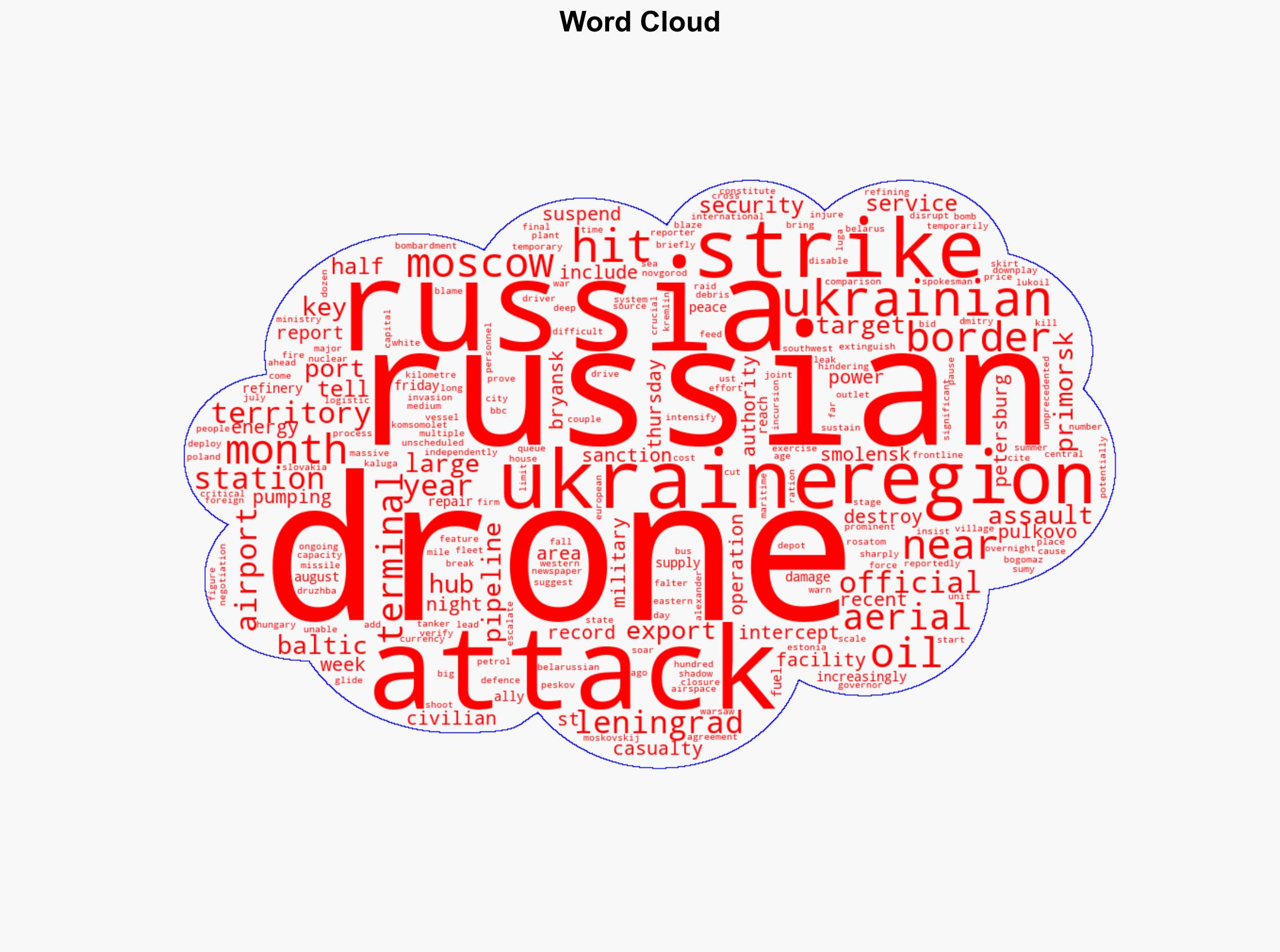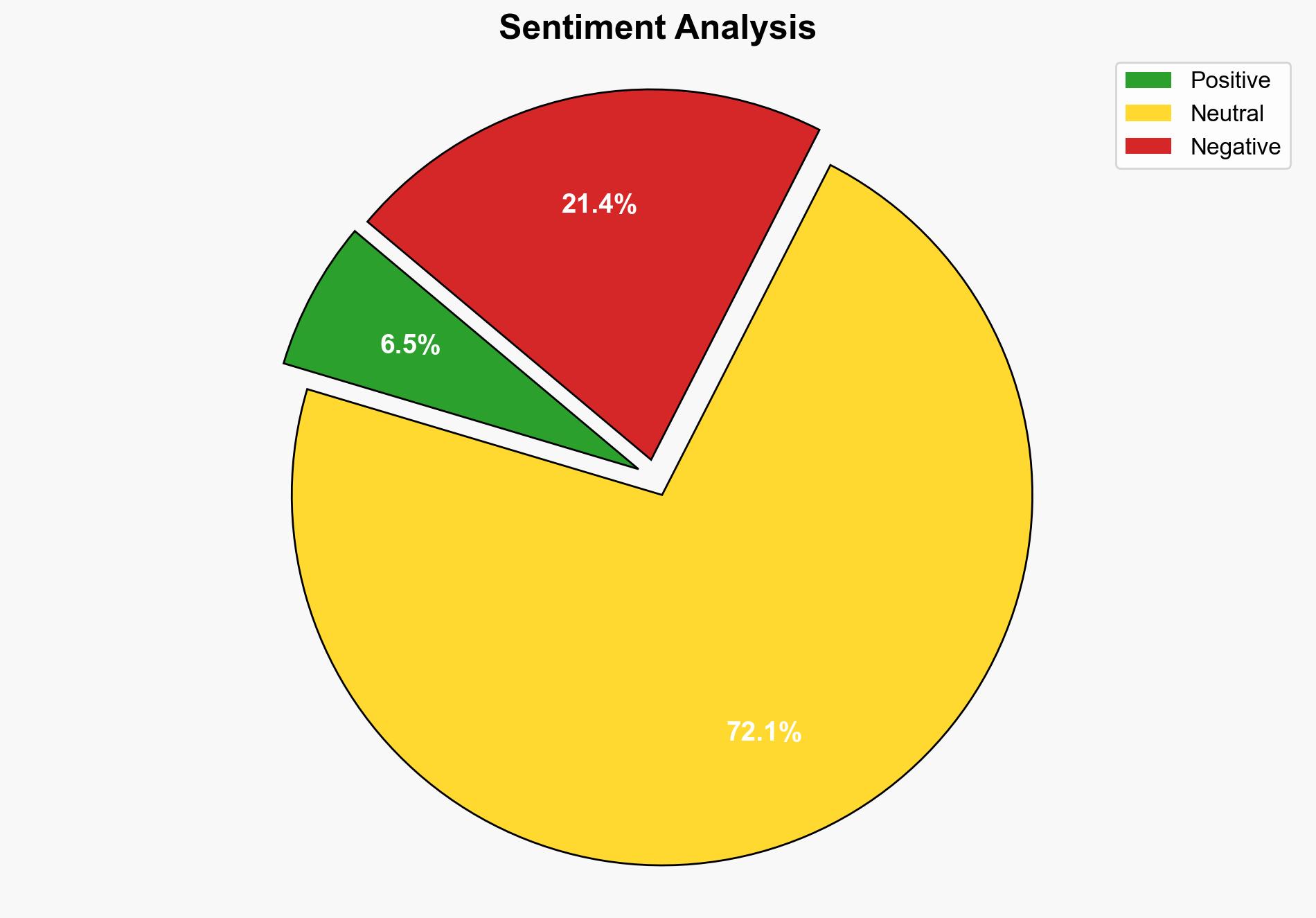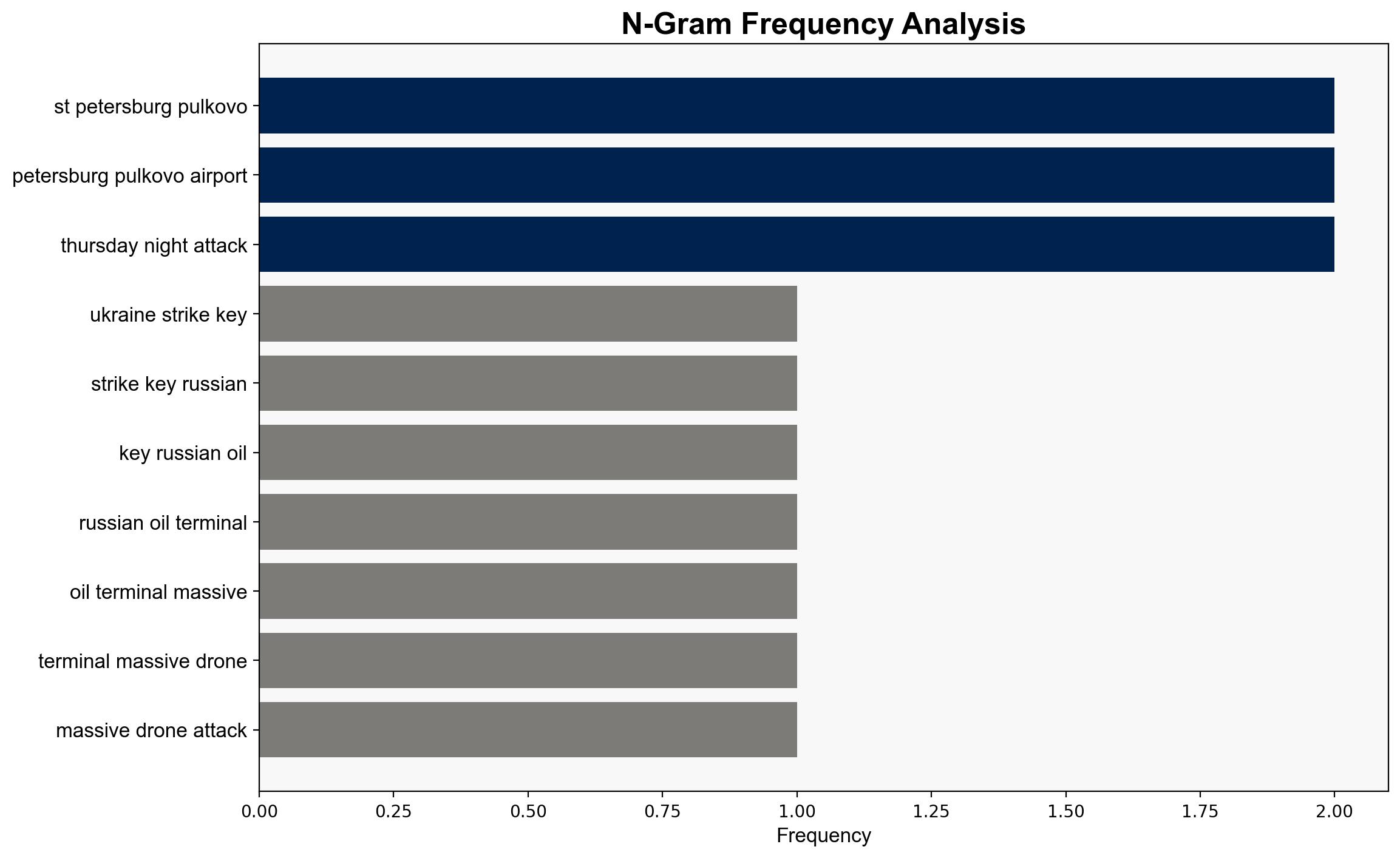Ukraine launches 221 drones on Russia Moscow says – BBC News
Published on: 2025-09-12
Intelligence Report: Ukraine launches 221 drones on Russia Moscow says – BBC News
1. BLUF (Bottom Line Up Front)
The most supported hypothesis is that Ukraine is intensifying its drone strikes to disrupt Russian energy infrastructure, aiming to weaken Russia’s economic and military capabilities. Confidence level: Moderate. Recommended action: Increase monitoring of cross-border drone activities and assess potential impacts on global energy markets.
2. Competing Hypotheses
1. **Hypothesis A**: Ukraine’s drone strikes are part of a strategic campaign to degrade Russian energy infrastructure, aiming to limit Russia’s operational capabilities and economic stability.
2. **Hypothesis B**: The drone strikes are primarily retaliatory measures, intended to provoke a Russian response and draw international attention to the ongoing conflict.
Using ACH 2.0, Hypothesis A is better supported due to the targeted nature of the strikes on critical infrastructure like oil terminals and pipelines, which align with strategic military objectives. Hypothesis B lacks consistent evidence of provocation intent, as the strikes focus on infrastructure rather than civilian targets.
3. Key Assumptions and Red Flags
– **Assumptions**: Ukraine has the capability and intent to conduct such large-scale drone operations. Russia’s reports are accurate and not exaggerated for propaganda.
– **Red Flags**: Inconsistent casualty reports and lack of independent verification raise questions about the scale and impact of the strikes. Potential bias in Russian media reporting.
4. Implications and Strategic Risks
The escalation of drone strikes could lead to significant disruptions in global energy markets, particularly if key infrastructure is damaged. There is a risk of further military escalation between Ukraine and Russia, potentially involving NATO if Russian territory near alliance borders is affected. Cyber retaliation and misinformation campaigns could increase, complicating diplomatic efforts.
5. Recommendations and Outlook
- Enhance intelligence-sharing among allies to monitor drone activities and assess impacts on energy infrastructure.
- Prepare contingency plans for potential disruptions in energy supplies, focusing on alternative sources and strategic reserves.
- Scenario Projections:
- Best: Diplomatic efforts lead to de-escalation and resumption of peace talks.
- Worst: Escalation into broader conflict involving NATO territories.
- Most Likely: Continued tit-for-tat strikes with intermittent diplomatic engagement.
6. Key Individuals and Entities
– Alexander Bogomaz: Governor of Bryansk region, reported injuries from drone debris.
– Dmitry Peskov: Kremlin spokesperson, commented on peace negotiations.
– Rosatom: Russian state energy firm, reported drone attack near Smolensk nuclear power plant.
7. Thematic Tags
national security threats, cybersecurity, counter-terrorism, regional focus




